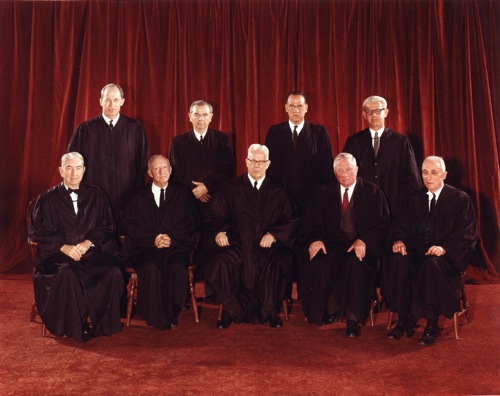
Matchbook from Ollie's Barbecue in Birmingham, Alabama. Professor Blackman found this matchbook on eBay. It was manufactured in Atlanta, Georgia--proof that Ollie's used products that travelled across state lines.

The Warren Court (1962-1964). Seated, from left to right: Justices Tom C. Clark, Hugo L. Black, and Chief Justice Earl Warren, and Justices William O. Douglas and John Marshall Harlan, II. Standing, from left to right: Justices Byron R. White, William J. Brennan, Potter Stewart, and Arthur J. Goldberg.

Specifically, segregationist policies impeded interstate travel. For example, the Green Book provided African Americans with a listing of hotels they could stay while traveling.

Unlike the Heart of Atlanta Motel, Ollie’s BBQ did not serve any out of state customers. Nonetheless, the Court found “that a substantial portion of the food served in the restaurant had moved in interstate commerce.”

Implied Powers on the Warren Court
The second test case, Katzenbach v. McClung, involved Ollie’s Barbecue. This restaurant in Birmingham, Alabama, would not serve African-American customers. Unlike the Heart of Atlanta Motel, however, Ollie’s Barbecue did not serve out- of-state customers. Nonetheless, the Court found “that a substantial portion of the food served in the restaurant had moved in interstate commerce.”
Here, the Court recognized what is sometimes called a jurisdictional hook: Congress had jurisdiction to regulate local activity that utilized items that had previously travelled in interstate commerce.